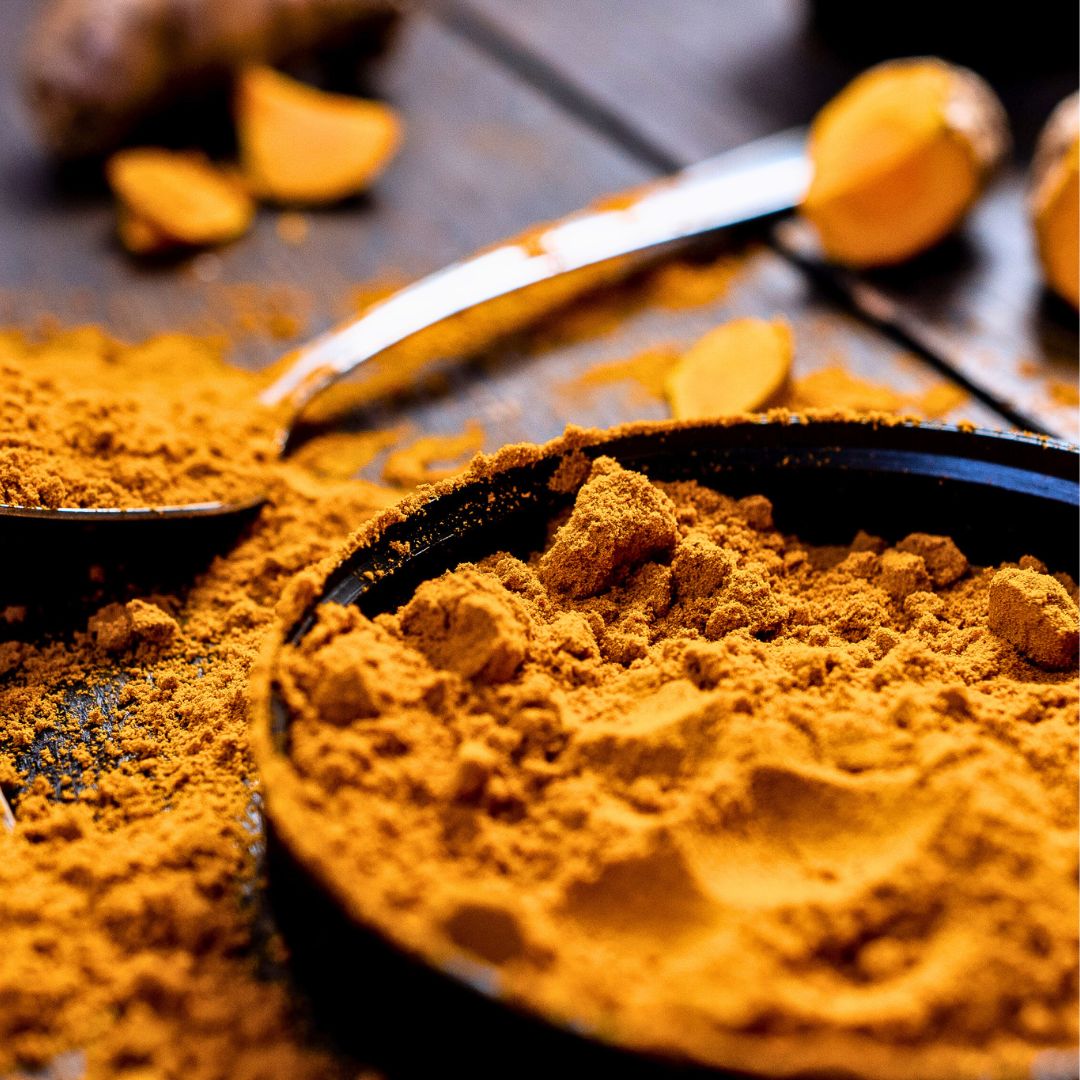5 Ways Turmeric Supports Your Body’s Natural Healing Process

5 Ways Turmeric Supports Your Body’s Natural Healing Process
Turmeric, a golden spice with a rich history in Ayurvedic and traditional medicine, has become a popular natural supplement for everything from joint pain to mental clarity. Its active ingredient, curcumin, is what gives turmeric its powerful anti-inflammatory and antioxidant properties.
For those dealing with musculoskeletal pain, inflammation, or general fatigue, turmeric can be a helpful addition to a wellness routine. Here are five ways turmeric can help you to live, move & feel better.
1. Natural Anti-Inflammatory & Pain Relief
Chronic inflammation is a key contributor to persistent pain—especially in conditions like osteoarthritis, tendonitis, lower back pain and soft tissue injuries. Turmeric’s active compound, curcumin, has been shown to block molecules (such as NF-kB) involved in inflammation.
By calming inflammatory responses, turmeric can help:
- Reduce joint stiffness and muscle soreness
- Support recovery from injury
- Decrease the frequency or severity of pain flare-ups
When inflammation is reduced, people often experience better mobility, faster healing and longer-lasting relief from treatment.
Combining professional care with anti-inflammatory support (through nutrition, supplements, or lifestyle) can create a more stable, long-term approach to managing pain.
2. Boosts Mood & Supports Mental Health
Inflammation isn’t just a physical issue—it also affects the brain. Studies suggest curcumin may increase serotonin and dopamine levels, helping to improve mood and ease symptoms of depression and anxiety. It may also reduce "neuroinflammation," which plays a role in brain fog and low mood.
- Supporting mental well-being is essential when managing chronic pain. When mood improves, pain perception often decreases, and patients tend to engage more fully in their recovery.
3. Supports Heart Health
Curcumin helps improve endothelial function (how well your blood vessels dilate), reduce cholesterol, and manage blood pressure. These benefits are particularly helpful for those with a sedentary lifestyle, chronic stress, or systemic inflammation—all of which increase cardiovascular risk.
4. Brain Function & Cognitive Support
Some research suggests turmeric may support brain health by increasing levels of brain-derived neurotrophic factor (BDNF), a protein linked to memory, learning, and mood regulation. This could be especially valuable for older adults or anyone managing brain fog related to stress or pain.
5. Strengthens the Immune System
Turmeric contains antioxidants that help protect cells from damage and modulate immune function. This means fewer inflammatory reactions and a more resilient immune response—especially helpful during high-stress periods, seasonal transitions or post-injury recovery.
How to Incorporate Turmeric Into Your Diet
Adding turmeric to your diet is simple and can be delicious. Here are a few easy ways:
- Golden Milk (Turmeric Latte): Combine turmeric, black pepper, cinnamon, and your choice of milk. Heat and sweeten to taste.
- Add to Soups & Curries: Turmeric pairs beautifully with lentils, vegetables, and coconut milk.
- Smoothies: Add a ½ tsp to your morning smoothie with ginger and fruit for an anti-inflammatory boost.
- Turmeric Capsules: For higher doses, especially for pain or inflammation, consider a high-quality curcumin supplement (preferably with black pepper extract for absorption). Always consult a healthcare professional first.
Pro Tip: Always combine turmeric with black pepper and a healthy fat (like olive oil or coconut milk). This significantly boosts curcumin absorption.
Final Thoughts: A Natural Ally for Pain and Recovery
Turmeric isn’t a quick fix, but it’s a powerful, natural tool to support your body’s healing. When used alongside osteopathic treatment, proper movement, and good self-care, it may help reduce inflammation, improve recovery, and support whole-body wellness.
